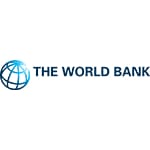Helping Cash Transfer Recipients Reach Financial Goals in Kenya
HIGHLIGHTS
- Cash transfer recipients that received a set of behavioral tools were 7% more likely to set a financial goal and saved 42% more money.
- Even during the uncertainty brought on by the COVID-19 pandemic, recipients reported that they still used the tools, and that the tools provided a path to building a savings cushion against emergencies and improving livelihoods.
The Challenge
Poverty rates in Kenya have significantly declined since 2005 thanks to a variety of initiatives by the Kenyan government, including an unconditional cash transfer program. However, despite its successes, many recipients of Kenya’s cash transfer program have difficulty reaching longer-term financial goals, such as starting a new business or purchasing livestock.
Our Approach
In order to address behavioral barriers that participants face that make it challenging for National Safety Net Program (NSNP) participants to set specific, achievable goals, plan for how they will reach them, and act on their intentions to accomplish their goals, ideas42 co-designed and tested a package of behavioral interventions with Kenya’s government and World Bank partners for recipients of Kenya’s NSNP.
Results
Testing these interventions with 900 participants revealed that recipients that received the behavioral interventions were on average 7% more likely to have set a financial goal in comparison to the control group. Furthermore, the treatment group was able to save about 600 KSH, or approximately 6 USD, more than the control group. This is equivalent to a 41% increase in savings.
Takeaway
Despite the COVID-19 pandemic, we learned through qualitative interviews that recipients still found behaviorally informed tools helpful for taking steps toward their financial goals. This suggests that providing cash transfer recipients with behaviorally informed supports is a promising way to help them take meaningful steps aligned with their self-identified financial goals, even during times of uncertainty. Given the encouraging results of this work, the Government of Kenya plans to scale these behavioral interventions to reach more recipients nationwide under their new Kenya Social and Economic Inclusion Programme.
Interested in our work applying behavioral science to global development? Email info@ideas42.org, follow us on LinkedIn, or tweet at @ideas42 to join the conversation.
Partners










